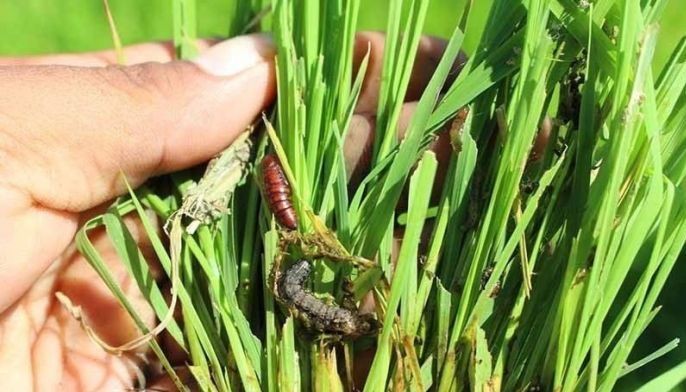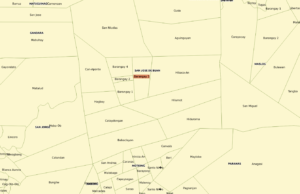Urgent action needed to address armyworm devastation in Negros Occidental farms


Nearly 300 hectares of farms and plantations across 17 barangays in seven towns and cities in Negros Occidental have been infested by armyworms, locally known as “tagustos.” In response, the Pambansang Katipunan ng mga Magbubukid (PKM)-Negros Island, a revolutionary farmers’ organization, is demanding immediate and adequate action from the Marcos regime and its agencies to address the affected farms of poor peasants.
The pest infestation has impacted farms in Himamaylan City, Kabankalan City, Isabela, Moises Padilla, La Castellana, Binalbagan, and Ilog. According to the group, farmers on the island are facing the new pest outbreak shortly after suffering losses due to the El Niño-induced drought. Some of these areas were also affected by the recent Kanlaon Volcano eruption.
PKM-Negros adds that the impact of these calamities has been exacerbated by the Marcos regime and local government’s ineffective response. Currently, the local government of Negros Occidental has only allocated a meager ₱3 million fund for pesticides to combat the armyworms.
The group warns that if not promptly addressed, controlled, and resolved, the armyworm infestation could rapidly spread to farms in neighboring towns and cities of Negros Occidental. Experts claim that armyworms can consume a hectare of cornfield overnight.
PKM-Negros reports that farmers, especially small sugarcane planters, are anxious as they are rushing to plant after the drought. They had hoped to recover their losses from recent months and earn during the last milling season.
“Even if they have to borrow money or incur additional planting expenses, they will do so in hopes of recovering costs and improving their situation when the milling season opens. However, this hope of small farmers has quickly been replaced by fear and anxiety due to the armyworm outbreak,” PKM-Negros stated.










